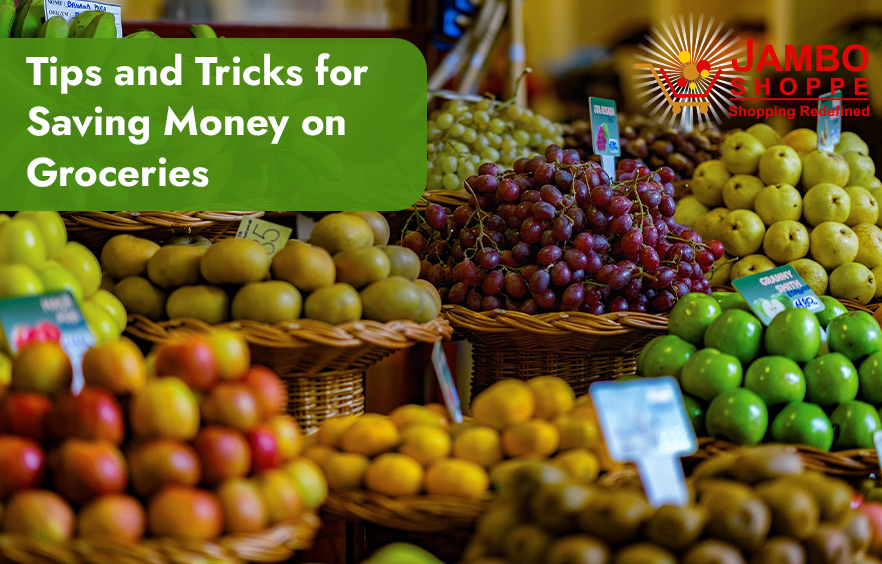We all want to eat well and maintain a healthy lifestyle, but sometimes it seems like the cost of groceries is just too high. However, there are ways to save money on groceries without sacrificing quality or taste. In this blog, we’ll explore tips and tricks to help you reduce your grocery bill and make your wallet a little happier.
- Plan Your Meals in Advance
By doing so, you can avoid buying unnecessary items and reduce the risk of food waste. Make a list of the meals you want to prepare for the week, and then create a shopping list based on the ingredients you need. Please stick to the list when you go grocery shopping, and avoid buying anything that isn’t on it. This will keep you constantly on track to buy only what you can afford and prevent over-stretching your pockets. Check your pantry and fridge before you go to avoid buying items you already have.
- Shop in Bulk
Look for bulk items such as rice, pasta, beans, and canned goods, often at a lower price per unit. Just make sure you have enough storage space for your bulk purchases. Buy in huge quantities, as you can always land huge discounts. Trust me, it will save you hundreds of dollars in fuel money, and random store runs. However, be careful not to buy more than you can realistically use before it goes bad. Items like rice, pasta, and canned goods are good options for buying in bulk.
- Use Coupons and Discounts
Look for coupons in your local newspaper, online, or through loyalty programs. Also, check if your grocery store offers discounts or promotions, such as buy-one-get-one-free deals. Coupons also encourage you to try new products or brands you might not have considered otherwise. You can experiment with different brands without breaking the bank by using a coupon to purchase a discounted item. This can help you discover new favourites while controlling your grocery bill. Another benefit of using coupons is combining them with other discounts, such as sales or promotions. This can result in even greater savings on your grocery bill.
- Grow Your Food
Have you got a small garden? Great, now give it a try. Gardening and farming your own small grocery produce are so convenient and satisfying. Watching your vegetables sprout and grow from the ground to your plate is a spectacular miracle of nature. You will save some extra dollars from frequent store runs to get garlic, tomatoes, peppers, and other groceries that can otherwise be grown at home. If you have a small apartment, try growing herbs on your balcony and witness the magic. Just don’t forget to water them often.
- Buy Generic Brands
Generic brands are typically cheaper than name brands because they do not have to spend as much on advertising and packaging. This means you can get the same quality products at a lower price. Generic brands often have the same quality as name brands, sometimes even better. They are made with the same ingredients and follow the same standards as the name brands. So, there is no need to worry about sacrificing quality when choosing generic brands. Generic brands offer a wider range of products that cater to different needs and preferences. They offer everything from food and household items to personal care and beauty products. This allows consumers to choose products that suit their needs and preferences without paying a premium for the name brand.
- Avoid Pre-packaged and Convenience Foods
When you cook from scratch, you have more control over your ingredients. This means you can buy bulk items like rice, beans, and pasta, which is often much cheaper than pre-packaged meals. Pre-packaged meals usually come with a convenience tax. You’re paying for the time and effort spent preparing and packaging the food. You only pay for the much cheaper ingredients when you cook from scratch. You can make larger meals and freeze them when you cook from scratch. This can be a great way to save money, as you can buy ingredients in larger quantities and make more meals at once. When you cook from scratch, you can use ingredients you already have. This can help reduce food waste, as you’re not throwing away unused ingredients.
- Buy Seasonal Produce
When produce is in season, it is typically more abundant and cheaper to produce, meaning it can be sold at a lower price point. Additionally, when you buy produce in season, you are likely buying food grown closer to home, reducing transportation costs and emissions. Another benefit of buying seasonal produce is that it often tastes better. Produce in season is typically picked at the peak of ripeness, which can enhance its flavor and nutritional value. Additionally, seasonal produce is often fresher because it hasn’t been transported long distances or stored for extended periods. Consider frozen and canned foods. Frozen and canned foods are often cheaper than fresh produce and have a longer shelf life. Look for frozen fruits and vegetables without added sugar or salt and canned goods without added preservatives.
Conclusion
Eating healthy and delicious food doesn’t have to break the bank. Following these simple tips, you can shop smart, reduce food waste, and save money on your grocery bill. So, the next time you head to the grocery store, remember these tips and let them guide you toward making more cost-effective choices. With a little effort and planning, you can enjoy nutritious meals without putting a strain on your finances. Order groceries online today in Kenya and enjoy fast and timely delivery to your doorstep. Jamboshoppe is here to make your cooking cheaper and easier.


